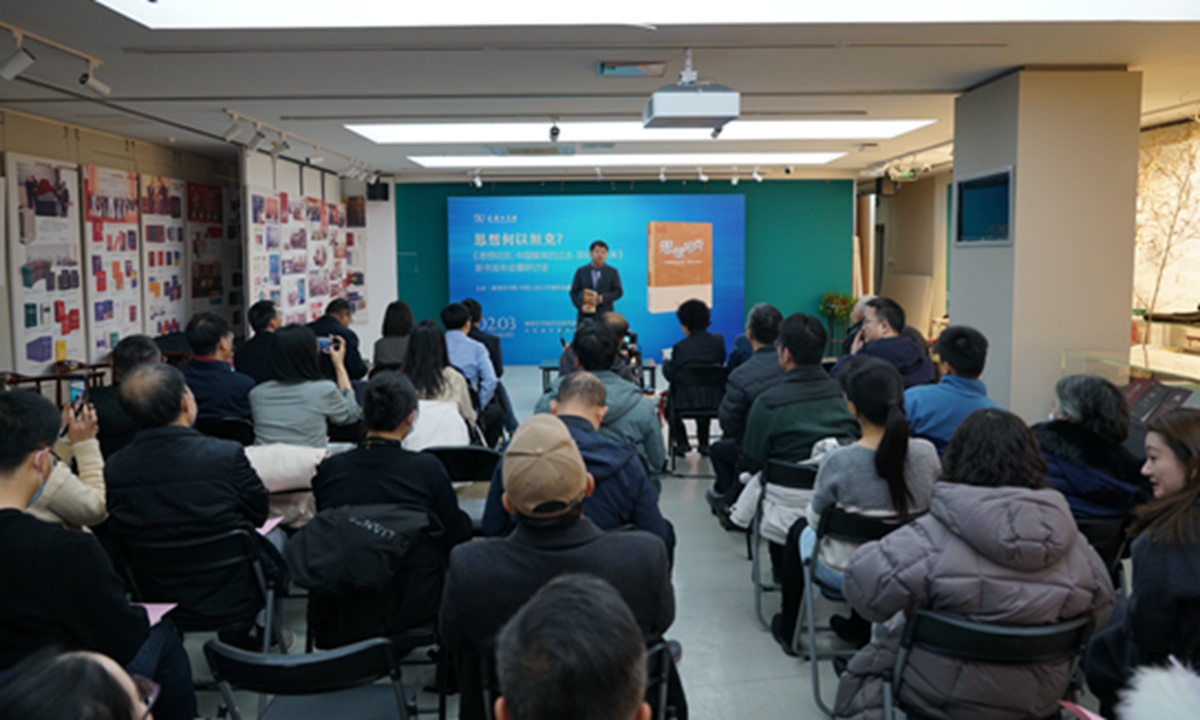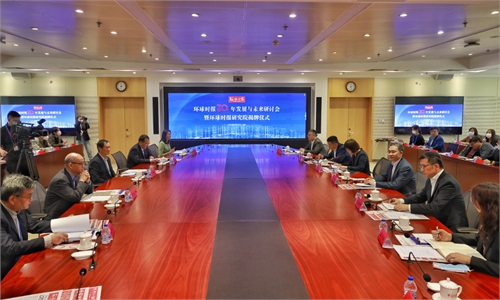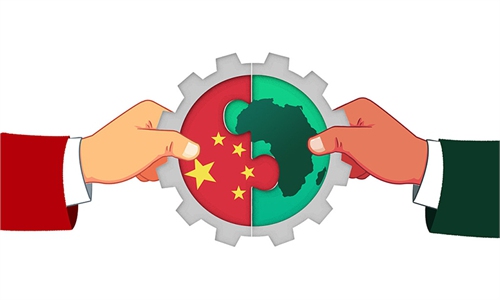
Launching ceremony of the book Tank of Thoughts: The Past, Present, and Future of Chinese Think Tanks Photo: RDCY
Despite spectacular development in the past decades, it seems that China, already the world second largest economy, does not possess influence of thoughts that matches its economic influence. In a book-launching ceremony on Saturday, Chinese think tank researchers, scholars and media professional discussed the current development and future trends of Chinese think tanks.The book Tank of Thoughts: The Past, Present, and Future of Chinese Think Tanks was released at the ceremony. Written by Wang Wen, executive dean of Chongyang Institute for Financial Studies at Renmin University of China (RDCY), the book is reportedly the first academic work in China to systematically evaluate and study the thousand-year development history of think tanks, the development status of the new type of Chinese think tanks with Chinese characteristics in the past decade, and the future trends of think tanks in the global intellectual competition.
Gu Qing, Secretary of the Party Committee and Executive Director of the Commercial Press, the publisher of the book, stated at the event that currently, China's think tank construction is continuously advancing and playing an important role in assisting government decision-making and solving economic and social development challenges. However, it is undeniable that as a new type of organization, think tanks have also encountered significant challenges in their development process. Currently, decision-makers, think tank practitioners, and the academic community need to further deepen their attitudes and understanding of think tank research.
Year 2023 marked the 10th anniversary since the concept of "new type of think tanks with Chinese characteristics" was introduced. Chinese think tanks have experienced rapid development since then. According to multiple evaluation reports, there are now over 1,000 think tanks in China, making it the second largest country in terms of think tank quantity, only behind the US, according to experts. However, as analyzed in the book " Tank of Thoughts," China's discourse power in the international arena has not yet reached a level that matches its comprehensive national strength and international status. After the book-launching ceremony, a seminar was held to discuss the issue. The seminar was moderated by Yu Guilin, deputy chief editor of the Commercial Press.
This era demands more from Chinese think tank scholars than ordinary scholars, said Chen Wenling, Chief economist of China Center for International Economic Exchange, adding that they are not only required to have intellectual capabilities but also need to possess learning abilities, penetrating thoughts, and competitiveness.
Fang Ning, former director of the Institute of Political Science at the Chinese Academy of Social Sciences, believes that in the past decade, with the historical process of China's reform and opening up, Chinese think tanks have made significant progress, evolving from nonexistence to having considerable strength. Chinese think tanks have gradually developed into independent specialized research institutions, distinct from general social science research, focusing on national and social development strategies and policy research.
While China has already solved the problems of being bullied and starved, now it needs to solve the problem of being scolded, solving the latest problem of being scolded seems to be more difficult than the previous two, said Lu Jingxian, executive deputy editor-in-chief of the Global Times English Edition.



